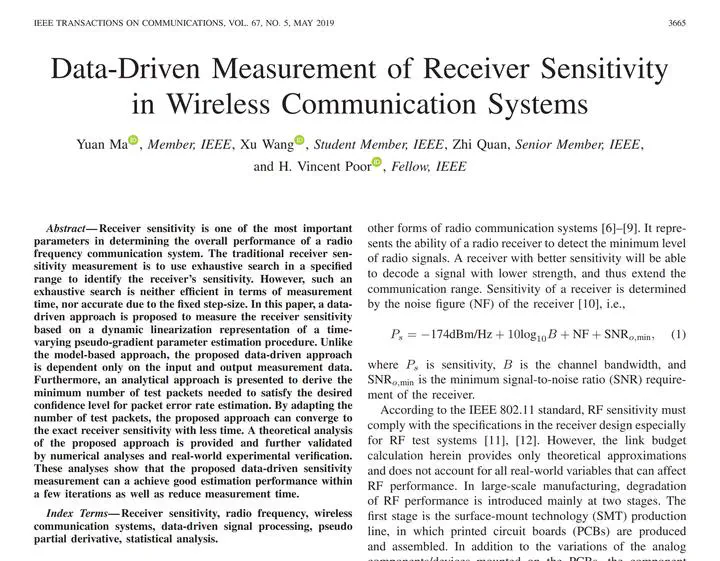 Image credit: Unsplash
Image credit: UnsplashAbstract
Receiver sensitivity is one of the most important parameters in determining the overall performance of a radio frequency communication system. The traditional receiver sensitivity measurement is to use exhaustive search in a specified range to identify the receiver’s sensitivity. However, such an exhaustive search is neither efficient in terms of measurement time, nor accurate due to the fixed step-size. In this paper, a data-driven approach is proposed to measure the receiver sensitivity based on a dynamic linearization representation of a time-varying pseudo-gradient parameter estimation procedure. Unlike the model-based approach, the proposed data-driven approach is dependent only on the input and output measurement data. Furthermore, an analytical approach is presented to derive the minimum number of test packets needed to satisfy the desired confidence level for packet error rate estimation. By adapting the number of test packets, the proposed approach can converge to the exact receiver sensitivity with less time. A theoretical analysis of the proposed approach is provided and further validated by numerical analyses and real-world experimental verification. These analyses show that the proposed data-driven sensitivity measurement can a achieve good estimation performance within a few iterations as well as reduce measurement time.